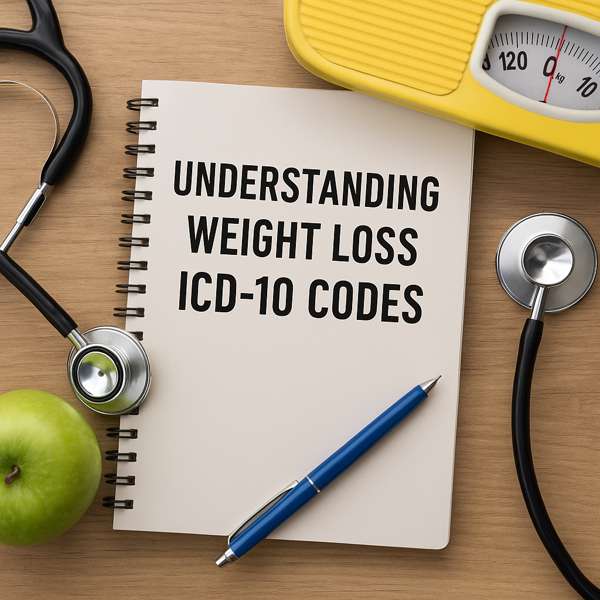Understanding Weight Loss ICD-10 Codes
Understanding Weight Loss ICD-10 Codes
Blog Article

In the world of healthcare, accurate coding is vital — especially when it comes to documenting weight loss.
In this article, we’ll break down what ICD-10 codes are used for weight loss, how to apply them, and what you should know for accurate recordkeeping.
ICD-10 Basics Explained
It’s a standardized system used worldwide for classifying medical conditions and diseases.
Each diagnosis is assigned a unique code, which is used for:
- Submitting claims to health providers
- Tracking public health trends
- Clinical documentation
ICD-10 Codes for Weight Loss
Choosing the correct code depends on the cause, severity, and context of the weight loss.
Key codes include:
- R63.4 – Abnormal Weight Loss
This code applies when a patient loses a significant amount of weight without trying, often due to illness.
- Used when weight loss is guided by professional support
Often applied in cases involving nutritional intervention or guidance.
- Z72.4 – Inappropriate Diet and Eating Habits
- visit this website E66.9 – Obesity, Unspecified
- Applied in extreme undernutrition cases, often linked with weight loss
When to Use R63.4 for Weight Loss
R63.4 is the most commonly used ICD-10 code for weight loss, but it must be applied correctly.
- The patient reports significant, unintentional weight loss
- Weight loss is a primary symptom in evaluation
- Used as part of diagnostic workup
Tips for Correct ICD-10 Weight Loss Usage
To avoid claim denials or coding errors:
- This determines whether R63.4 is appropriate
- Document related symptoms or conditions
- Support your claim with a full picture
- Be sure they make sense in context
Coding for Counseling and Support Services
If you’re coding for a structured weight loss program or health coaching, consider using these Z-codes:
- For nutrition-based support
- Z76.89 – Person Encountering Health Services for Other Reasons
- Z13.21 – Encounter for Nutritional Screening
These codes can support insurance claims for wellness, prevention, and obesity treatment plans.
Ensure Documentation is Clear and Compliant
Using the right ICD-10 code for weight loss is crucial for clear documentation and proper billing.
To summarize:
- Most common diagnosis for unknown causes
- Great for structured programs
- Use when weight loss is tied to illness
Always consult coding guidelines and payer policies when applying ICD-10 codes. Report this page